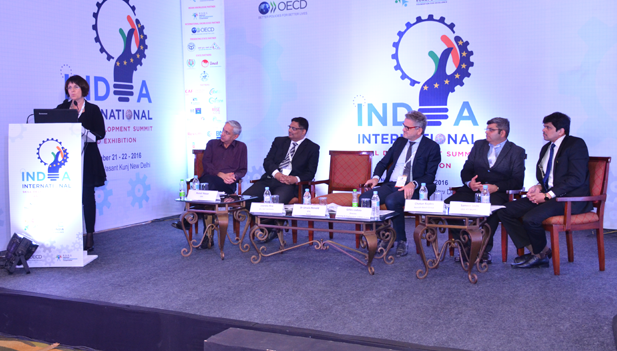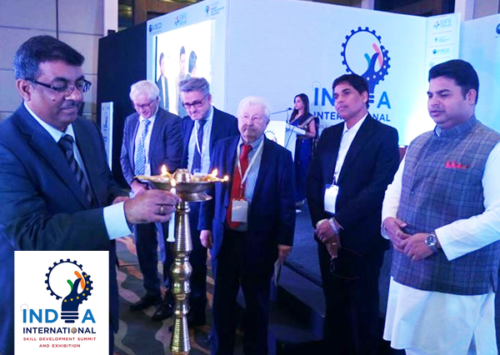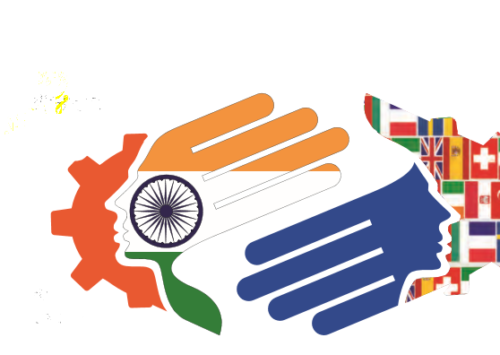A sustainable EU-India skill development partnership
Biz@India

Europe India Foundation for Excellence (EIFE) organised the first India International Skill Development Summit & Exhibition (IISDSE 2016) on November 21-22 at The Grand Hotel in New Delhi, with the conviction that Europe is best-placed to help India in the ‘Skill India’ mission of the Indian Prime Minister, Narendra Modi.
The two-day meet was successfully conducted with participation of over 35 European skill development institutions and training companies, that held discussions and B2B negotiations with over 350 of their Indian counterparts to find ways in which Europe can contribute in a more meaningful manner to the ambitious programme of ‘Skill India’, that aims to provide training to the millions of Indian youth entering the job market every year.
The summit witnessed over 45 speakers from organisations like NSDC (India), Bosch (Germany), UIMM (Paris), Kohinoor Technical Institute (India), TUV Rheinland (Germany), ETH (Zurich), LD Didactic (Germany), GSI-SLV (Germany), Aditya Birla Foundation (India), Reliance Jio Infocom Ltd (India), Rise India, TATA Motors (India), Nanterre University (France), CAF (India) and OECD (Paris) among others.
The speakers deliberated on various topics in 16 thematic sessions over two days. The themes ranged from ‘achievements in skilling in India in the past decade’ to ‘training for tomorrow’, from ‘corporate initiatives taken in skilling and employability’ to the scope of ‘skilling in green economy in post-Paris Agreement World’, from ‘making links between education and employment’ to ‘skilling the rural youth’.
Count Christopher de Breza, founding chairman of EIFE said, “The development patterns of the countries are different, which means that there is a need to invite reach from outside who could look at the problems specific to India.” He highlighted the need for India to be adequately prepared for the huge demographic dividend that it stands to achieve in the next decade.
Officials and ministers from the Indian states of Uttar Pradesh, Odisha, Maharashtra, Sikkim and Jharkhand took the stage to discuss the skilling scenario in their respective states.
“The Uttar Pradesh Skill Development Mission seeks to ensure empowerment, entrepreneurial spirit and an environment for employability for the youth, which we want to ensure through many steps, such as adopting an American community college network or the German dual track mode education,” stated Prof Abhishek Mishra from the Government of Uttar Pradesh.
Arun Kumar Sahoo, minister from the Government of Odisha spoke on the need for developing ITIs (Industrial Training Institutes) and short-term training programmes in the state for further skilling of the rural workforce, 41 pc of which is aged less than 35 years.
To throw light on the problems of funding under CSR in skill development, Sanjiv Garg, VP & Global head of the skill development segment of TATA Motors talked about their participation in various skill development programmes like ‘UDAAN’ under which they have trained over 200 youth, ‘Kaushal Vikas Yojana’ under which they have 70 training centres. They expressed their interest in bridging the gap between the technical knowledge that a student has and that a recruiter needs.
In the OECD session aimed at bringing the best practices in skilling in India, Mark Keese, head of Employment Analysis & Policy Division, Organisation for Economic Co-operation and Development (OECD) Paris, highlighted the skill mismatch which is a widespread problem through all the OECD countries. A survey conducted in India in 2015 showed that 60 pc of employers faced difficulties in filling vacancies due to lack of skilled workers.
Ranvir Nayar from EIFE concluded the summit by saying, “OECD is assessing skill gaps in terms of manpower. It is currently being worked upon in collaboration with EIFE, and we hope to start with the pilot study of a single state in India, at the very least.” Towards the end of this very successful summit, another intensive workshop in Paris in June 2017 was announced, which shall be followed by more site visits to various parts of Europe.
For a detailed account of the 16 plenary sessions, please visit ‘Briefs on deliberations during IISDSE 2016’.











